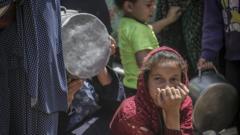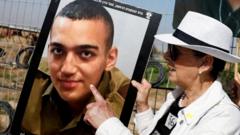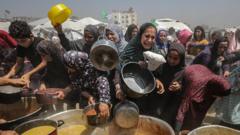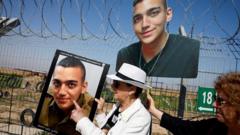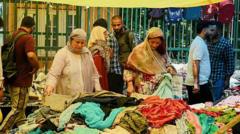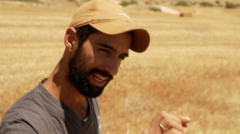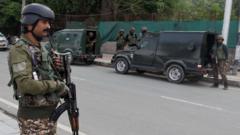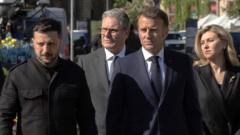Amsterdam grapples with heightened tensions following violent incidents involving Israeli football fans, revealing deep-seated animosities between Jewish and Muslim communities, and prompting urgent calls for harmony and reconciliation.
Tensions Rise in Amsterdam Following Recent Violent Clashes
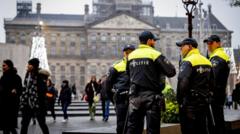
Tensions Rise in Amsterdam Following Recent Violent Clashes
A week of unrest in Amsterdam highlights rising antisemitism, hooliganism, and societal fractures amid the ongoing conflict in the Middle East.
In the heart of Amsterdam, a fragile calm settles over a city rocked by violence just a week prior, as clashes erupted involving Israeli football fans. This turmoil, described by city officials as a "toxic cocktail of antisemitism, hooliganism, and frustration” stemming from the ongoing Gaza conflict, has left the Dutch capital in a precarious state.
Notably, this violence reflects broader cracks in societal relations, particularly between Jewish and Muslim communities. Rabbi Lody van de Kamp of Amsterdam warned that the situation had been analogous to a "tinderbox." Protests related to the ongoing Middle East situation had already intensified, setting the stage for confrontation when Maccabi Tel Aviv fans arrived for a Europa League match against Ajax.
Tensions flared on the eve of the match when Maccabi supporters vandalized a Palestinian flag, leading to retaliatory calls on social media. Following the game, streets filled with skirmishes, vandalism, and violent incidents targeting not just fans but bystanders as well. The city's mayor, Femke Halsema, expressed alarm over the events, which were reminiscent of historical violence against the Jewish community.
Significantly, the violence coincided with Kristallnacht, the anniversary of a grim chapter in Jewish history. For many, this brought renewed fears of a past repeating itself. In response to rising antisemitism, the Dutch government announced an emergency fund of €4.5 million to support victims and combat antisemitic rhetoric. Yet, voices within the Jewish community, like Chanan Hertzberger of the Central Jewish Committee, caution that more action is needed to address the rising tide of hatred.
Political ramifications are evident as well, with the coalition government experiencing tensions over inflammatory rhetoric directed at Moroccan communities following the violence. Calls for actions such as deportation of dual nationals guilty of antisemitism have added fuel to the fire. There are concerns that such language creates an atmosphere of fear within established communities who have long felt integrated.
Senior figures, including Nora Achahbar, a junior minister who resigned from her role after confronting racist discussions in a recent cabinet meeting, signal profound deeper societal divides. Many are asking how to repair the strained relationships while advocating for greater understanding. Emine Uğur, a prominent columnist, highlights the pain felt in some communities, noting that aggression often masks unspoken grief surrounding the ongoing conflict in the Middle East.
Community leaders from both sides emphasize the need for open dialogue and collaboration to quell division. The recent violence represents a pivotal point for Amsterdam—challenging its identity as a city priding itself on tolerance and diversity. As they navigate these turbulent waters, community leaders are urging introspection and constructive communication, hoping to prevent recurrence while nurturing trust among all residents.
Amid the uncertainty, Rabbi van de Kamp reflects a sentiment shared by many: "We are allowed to be very angry, but we must never hate." In a climate of division, these words echo a plea for unity and understanding as Amsterdam moves forward.

